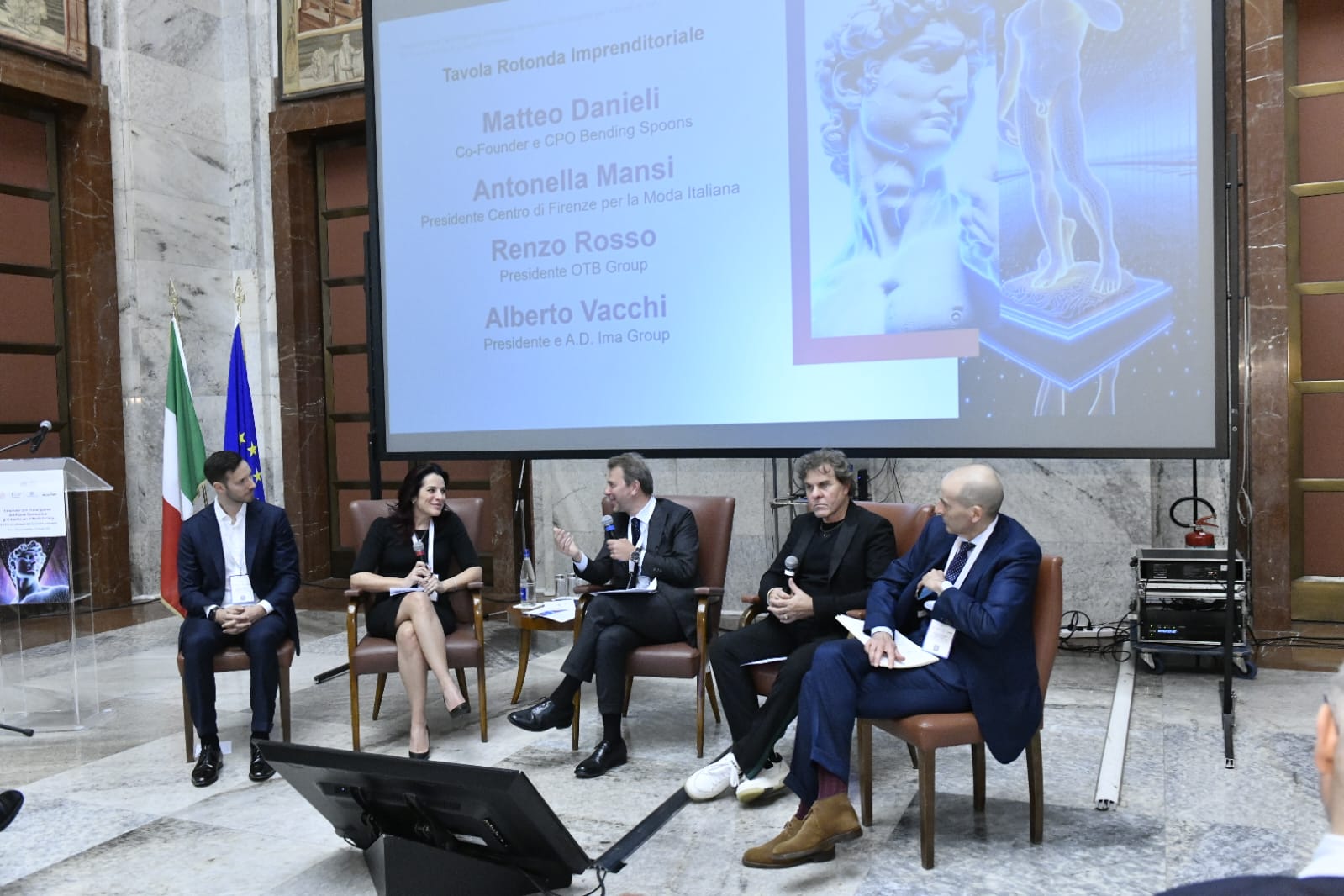Table of contents
The Ministry of Business and Made in Italy presented in recent days the study commissioned from Accenture on the impacts of artificial intelligence along the entire value chain, during the 20th Forum of the Leonardo Committee, an event that annually brings together representatives of institutions and the business community to take stock of development prospects for made in Italy.
This year’s theme focused on the role ofgenerative artificial intelligence in increasing the competitiveness of Italian enterprises.
Federico Eichberg, Mimit’s chief of staff, opened the forum by emphasizing how the ministry during the current legislature “reorganized itself and provided a specific directorate general for new and emerging technologies.” And it is precisely in this direction that the ministry wants to expand Made in Italy from typical sectors such as textiles-clothing, food-beverages, wood-furniture, boating, ceramics, and goldsmithing, to new ones related to technological innovation.
The study
Accenture ‘s analysis starts precisely from the consideration that these typical sectors have always been strongly export-oriented, accounting for more than 50 percent of total output, compared to 35 percent for other manufacturing sectors.
According to the research, this would be an additional GDP potential of the “extended” made-in-Italy sectors of about 80 billion euros by 2030. 50 billion would be a consequence of the increase in added value produced by putting the application of Generative AI into system. Of this 50, 15 billion would be tied to traditional made-in-Italy sectors and 35 to other sectors that could begin to benefit from the brand. The additional approximately 30 billion, of which 20 billion can be attributed to the new sectors, would be generated by the extension and strengthening of the made-in-Italy brand with appropriate systemic policies, which can lead to greater penetration both in countries where Italian companies are already present and in emerging geographical areas.
In addition, the application of technological solutions such as the digital twin on production lines could bring great benefits to Italian SMEs: on average, OEE – Overall Equipment Efficency (machinery quality and speed index) increases by 15-20%, while industrial costs decrease by about 30% due to increased efficiency. And it was Sergio Dompè, chairman of Leonardo Committee, who pointed out that AI made in Italy is useful “to have applications that have a resilience impact on SMEs.”
The new concept of made in Italy
Acccenture ‘s study therefore underscores and corroborates the ministry’s strategy: to extend the made-in-Italy brand to excellent economic sectors not traditionally included in the definition: such as mechatronics, pharmaceuticals, and chemicals. In fact, according to Minister Adolfo Urso, “Italy is growing more than the other major European powers” and “especially in exports. We overtook South Korea as the fifth largest exporting country.” And such “overtaking in an era of de-globalization makes us realize how capable Italy is of opening up in new performing markets.” Among the sectors mentioned in the Study, Urso also added aerospace and nautical sectors that the ministry would be “developing as a model to innovate.”
The minister then listed the choices made during this period. First and foremost on technologies related to energy production, and in this regard his speech further clarified the line on the energy mix to achieve the European goals of Agenda 2030 and Green Deal. In fact, Urso pointed as much to the importance of the “development of renewable technologies” as to that of “nuclear power” -and in this regard he says that- “we will develop it in Italy and they will not stop us.”
Among the choices then were listed that on the “importance of the reopening in Italy of the mines of raw materials that will be used to produce these technologies,” the organization of a new model of AI and the draft law on AI that provides, among other regulations, a billion euros for the Innovation Fund to venture capital, managed by CDP, which “will be used to give birth and grow startups operating in this field,” and “the will to form an Italian champion.” He then concluded that in these choices and policies “there are all the sufficient aspects of AI on industry to be a leading country.”
The case of Bending Spoons
Among the event participants, the symbol or model to emulate was the presence and speech of Matteo Danieli, co-founder and CPO of Bending Spoons, the Italian scaleup, or rather, unicorn that recently closed a $155 million round with a valuation exceeding $2.5 billion. Danieli said that while “Bending Spoons operates in a sector where made in Italy has not yet arrived,” on the other hand, “the most downloaded app in China last week is Italian, Remini.” “The reason for such success,” Danieli adds, “is Generative AI. Remini could be the second most used AI product in the world after Chat-GPT.”
And according to Danieli, the story of Bending Spoons demonstrates just that. 10 years after its founding, it was only in 2021 that the founders realized how investing in artificial intelligence would result in a competitive advantage as well as the market of the future.
On such an occasion with a focus on the development of emerging technologies, vertical on AI, hooked on exports and in favor of SMEs, although, with his presence as moderator, Francesco Giorgino, former deputy director of TG1 and currently director of the Rai Studies Office, provided a peppering of ethics and technology-recalling, for example, the Pope’s participation in the upcoming G7 panel on AI-the presence of a specific person with interventions aimed not only in this ethical, but also geopolitical direction was perhaps lacking. Especially in a scenario, yes deglobalized, but also prewar.
ALL RIGHTS RESERVED ©
